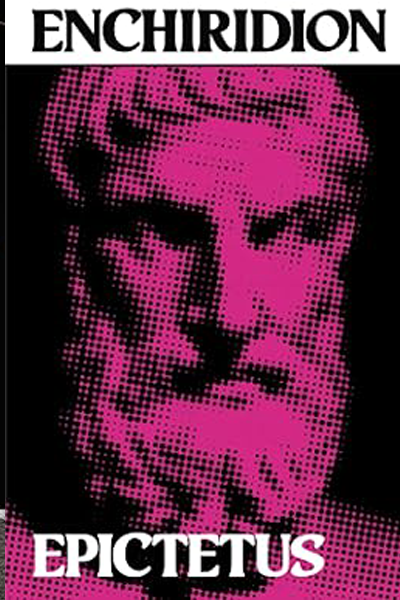
Category: Books
“Enchiridion” (or “The Handbook”) by Epictetus is a concise manual that encapsulates Stoic philosophy and offers practical wisdom for living a virtuous and fulfilling life. Here’s why prisoners may find it insightful:
- Epictetus and Stoicism:
- Why: Epictetus, a former slave turned Stoic philosopher, provides practical guidance on how to cultivate resilience, inner peace, and virtue despite external circumstances. This can be particularly relevant for prisoners facing challenging and restrictive environments.
- Focus on the Controllable:
- Key Teaching: “Some things are in our control, while others are not.”
- Why: Epictetus emphasizes the importance of distinguishing between what is within our control and what isn’t. For prisoners, this can offer a mindset shift, encouraging focus on personal attitudes and responses rather than external conditions.
- Freedom of the Mind:
- Key Teaching: “Freedom is the only worthy goal in life.”
- Why: Epictetus contends that true freedom lies in the ability to control one’s thoughts and reactions. This notion can empower prisoners to find mental and emotional freedom, even within the confines of physical incarceration.
- Endurance and Acceptance:
- Key Teaching: “He who is unhappy about not being a king is a slave to a kingdom.”
- Why: The manual encourages acceptance of one’s circumstances and promotes endurance in the face of adversity. This can resonate with prisoners seeking mental fortitude during their time of incarceration.
- The Power of Choice:
- Key Teaching: “Men are disturbed not by things, but by the view which they take of them.”
- Why: Epictetus emphasizes the influence of personal perspectives on well-being. For prisoners, this can inspire a shift toward a more positive and empowering outlook on their situation.
- Ethical Living:
- Key Teaching: “It is impossible for a man to learn what he thinks he already knows.”
- Why: The manual underscores the importance of continuous learning and ethical development. Prisoners may find inspiration to use their time for self-improvement and moral growth.
- Inner Strength:
- Key Teaching: “He is a wise man who does not grieve for the things which he has not, but rejoices for those which he has.”
- Why: Epictetus encourages gratitude and resilience, fostering inner strength. This can be particularly valuable for prisoners facing challenges, helping them find solace in positive aspects of their lives.
- Applying Stoic Principles:
- Key Teaching: “We cannot choose our external circumstances, but we can always choose how we respond to them.”
- Why: This fundamental Stoic principle reinforces the idea that individuals have agency in shaping their responses to external events. For prisoners, this can empower them to approach challenges with a sense of control over their reactions.
Reading “Enchiridion” can provide prisoners with philosophical tools for navigating the complexities of their circumstances, fostering resilience, and promoting personal growth despite external limitations. The practical wisdom offered by Epictetus may serve as a guide for individuals seeking mental and emotional well-being within the prison environment.
Purchase on: Amazon







